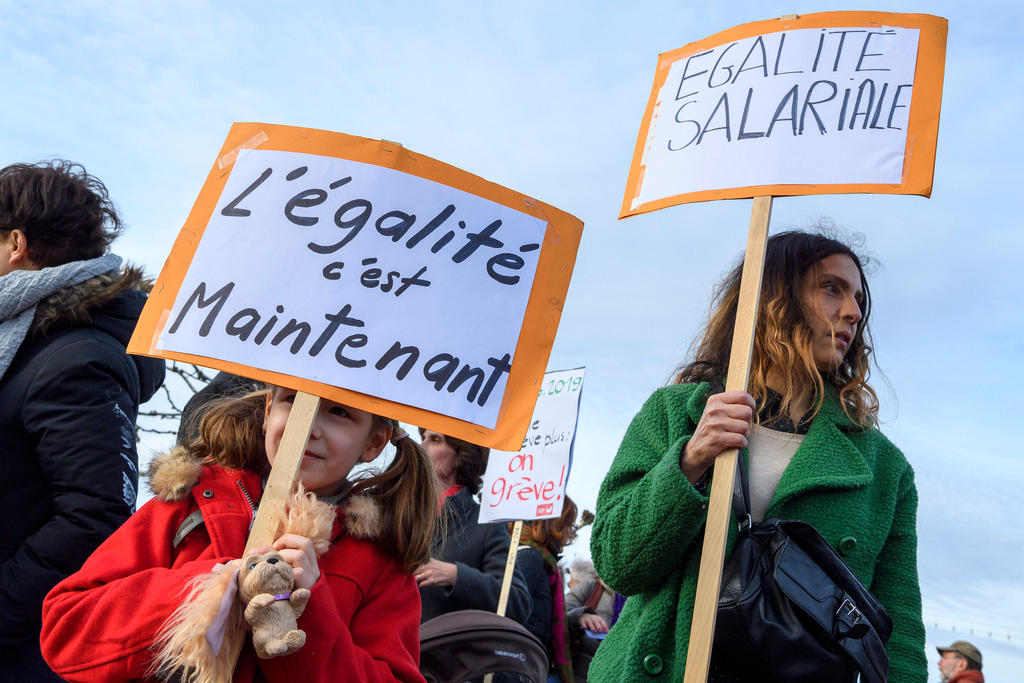
Swiss parliament passes salary equality law

Companies with over 100 employees will have to do regular pay equity checks thanks to a new law passed in the Swiss parliament. Supporters see this as a major step to combat gender discrimination in the workplace.
Nearly three years after the bill was introduced, the House of Representatives agreed on the salary equality law on Monday, with 99 votes in favour, 88 against, and four abstentions. The Senate approved the law in May.
With the decision, Switzerland joins a select group of countries such as Britain that have started mandating gender pay gap reporting. This is considered an important step towards achieving equal pay for equal work, and ultimately, eliminating gender discrimination.
+ Read more about progress in achieving gender equality in Switzerland
The major sticking point had been the size of companies that should be required to conduct pay equity analysis. Parliamentarians from the conservative-right parties had been against the law, arguing it placed additional bureaucratic burdens on companies, especially small ones.
The final version mandates that companies with at least 100 employees – under 1% of employers – will be required to report – a lower threshold than the Federal Council’s recommendation of companies with 50 employees. Companies must inform employees and shareholders about the results.
One concession to conservatives was the agreement that if a company demonstrates it has achieved equal pay, no further reporting will be required. This is a departure from the recommendation by the Federal Council that companies should be required to conduct a pay equity analysis every four years, regardless of the outcome of the last investigation.
Equal pay has been a key priority of Justice Minister Simonetta Sommaruga. Some 37 years after gender equality was enshrined in the constitution, women earn about a fifth less than men according to the Federal Equality Office. This means every woman loses out on an average of CHF600 ($625) a month.
Some 40% of the wage difference between men and women is because of unexplained factors, in that they cannot be justified by variables such as professional qualifications or years of service, according to the Office. Unexplained differences could be the result of unconscious bias or outright discrimination but could also be the result of women’s choices.

More
How work has evolved for Switzerland’s women and men

In compliance with the JTI standards
More: SWI swissinfo.ch certified by the Journalism Trust Initiative















![The four-metre-long painting "Sonntag der Bergbauern" [Sunday of the Mountain Farmers, 1923-24/26] had to be removed by a crane from the German Chancellery in Berlin for the exhibition in Bern.](https://www.swissinfo.ch/content/wp-content/uploads/sites/13/2025/12/01_Pressebild_KirchnerxKirchner.jpg?ver=f05a5a9c)














You can find an overview of ongoing debates with our journalists here . Please join us!
If you want to start a conversation about a topic raised in this article or want to report factual errors, email us at english@swissinfo.ch.